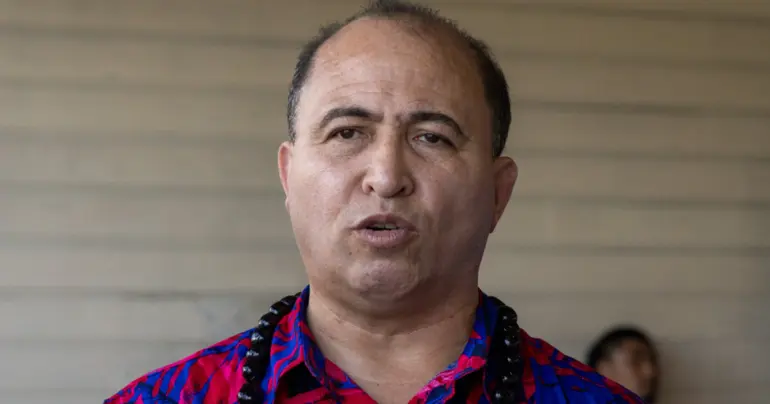Resistance over phasing out wooden buses
 By Sulamanaia Manaui Faulalo
•
05 May 2025, 8:40PM
By Sulamanaia Manaui Faulalo
•
05 May 2025, 8:40PM
The long-running debate over Samoa’s iconic wooden buses has resurfaced, as Land Transport Authority (LTA) CEO Sagauga Leilani Matavao has said there are plans to phase them out for safety reasons.
The decision echoes similar sentiments voiced in 2018 by then-CEO Leasi John Galuvao after a fatal crash in Faleula claimed three lives. Some bus operators are pushing back.
“I don’t support it because this is Samoa’s bus, rather than the ready-made buses,” said Faapalo Toomalatai, 65, from Vailoa Aleipata, who has owned and driven his bus for 40 years.
“They tried doing this in the last government and they were not successful. Now the new government wants to get rid of it. I disagree.”
Toomalatai believes the buses are still fit for service: “When an accident happens, it’s easier to hop out of these wooden buses. They are safer and easier. The people of Samoa have grown up to know these buses, they are used to them.”
Bus driver, Nusi Pulu, 49, from Fasitoo Uta, acknowledged the safety concerns but raised doubts about the alternatives.
“Yes, the wooden buses aren’t safe, but what about the ready-made buses that look unfit for the roads?” said Pulu, who has been driving for five years.
“If we give our buses away, we will also be losing money, and it will affect all of us who work on buses.
“If the wooden buses are taken care of properly by their owners, then the driving should go smoothly on the road and be deemed safe.”
Lila, 32, from Vaimea, who has been behind the wheel of a wooden bus for 10 years, supports the phase-out.
“These buses are older than us. It isn’t safe, and they should look into phasing them out and look at other alternatives. Safety should be put first,” he said.
Rotorua Faatoia, 55, who drives the Laei o Fuatino to Lefaga, disagreed.
“Samoa is a land of heritage, friendship, and love. These buses are our heritage, it is our history,” he said. “The Coaster buses are new, but the wooden buses are Samoa’s buses,” he said.
“They cannot just decide that one bus crash should affect all the rest of us. The buses that have been around longer are being taken care of, it’s the newer wooden buses that are getting into accidents.”
“These buses are also a source of income to provide for our families, our communities, and our villages.
“Not only do our local people love these buses, but I know tourists do too. They love the feel of the wind through the windows and enjoy the rides.”
Attempts to phase out the wooden buses began in 2000, but high costs of imported replacements and vehicle age restrictions led to the continued use of locally built models, now under stricter safety regulations. As the debate continues, a passenger summed up the public sentiment: “If they take these buses away, what are the people going to use?”
 By Sulamanaia Manaui Faulalo
•
05 May 2025, 8:40PM
By Sulamanaia Manaui Faulalo
•
05 May 2025, 8:40PM











